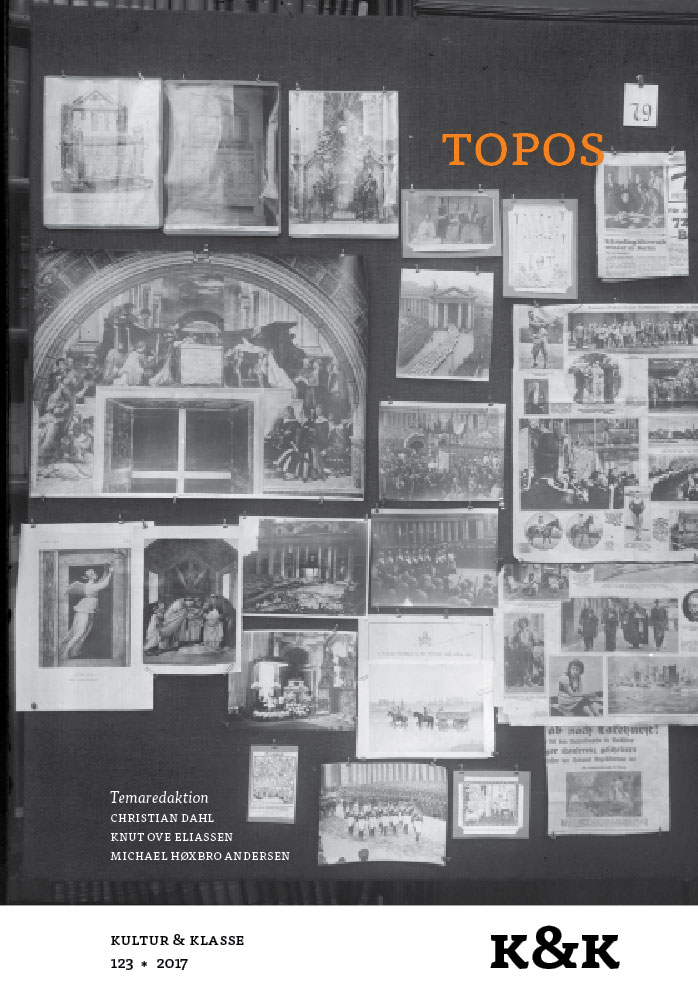Unio mystica. Skabelse af en topos
DOI:
https://doi.org/10.7146/kok.v45i123.96833Nøgleord:
carpe diem, unio mystica, topos, figur, syn, negation, sekulariseringResumé
The secular carpe diem and the religious unio mystica are historically very active in the Renaissance and the Baroque. Both form important steps in the development towards a secularized culture, abandoning the idea of eternal life with the carpe diem, and giving up the ecclesiastical hierarchy in favour of direct contact to God in the unio mystica, cf. Rudolf Otto.
The topos unio mystica is restructured and secularized in the “Aleph” by the Argentinian author Jorge Luis Borges introducing the complex figure of the repeated visual verb ver combined with a synedochical selection among the entirety of the vision. The complex figure reoccurs in Hundred Years of Solitude by Gabriel García Márquez, in the Black Book by the Orhan Pamuk, and without the figure in The War at the End of the World by Mario Vargas Llosa, each of them altering the topos according to their narrative needs.
As stated in Ernst Robert Curtius, the topos can be seen as historically variant, and with Marie Lund Klujeff it is proposed that the figure as such can contribute actively in the creation and restructuring of the topos, thus not only being confined to the elocutio, but also contributing to the inventio.
Referencer
Attar, Farid ud-Din. The conference of the birds. London: Routledge & Kegan Paul, 1961 (1177).
Borges, Jorge Luis. ”Aleffen”. Aleffen. København: Gyldendal, 1989 (1949).
Cervantes, Miguel de. Den sindrige ridder don Quixote de la Mancha. Århus: Forlaget Centrum, 1998-99, Aarhus Universitetsforlag, 2011 (1605-1615).
Curtius, Ernst Robert. Europäische Literatur und Lateinisches Mittelalter. Tübingen und Basel: A. Francke Verlag, 1993 (1948).
García Márquez, Gabriel. Cien Años de soledad. Buenos Aires: Editorial Sudamericana, 1969 (1967).
García Márquez, Gabriel. Hundrede års ensomhed. København: Samlerens forlag, 1969 (1967).
Goldbæk, Henning: ”Istanbul som ventesal. Orhan Pamuk mellem sufimystik og moderne kulturbevidsthed”. Tidsskriftet Spring, nr. 27, (2009): 227-239. Særnummer om Rejse og modernitet. Europæisk litteratur fra Diderot til Pamuk.
Góngora, don Luis de. ”Mientras por competir con tu cabello”. Soneto XXXI, http://www.cervantesvirtual.com/obra-visor/sonetos--5/html/000fdc58-82b2-11df-acc7-002185ce6064_2.html
Klujeff, Marie Lund. ”Retoriske figurer og stil som argumentation”. Rhetorica Scandinavica 45, (2008): 28-48.
López-Baralt, Luce: ”Para la génesis del ‘pájaro solitario’ de San Juan de la Cruz”. Romance Philology 37, nr. 4 (1984): 409-424.
Otto, Rudolf. Das Heilige: Über das Irrationale in der Idee des Göttlichen und sein Verhältnis zum Rationalen. Breslau: Trewendt & Granier, 1922 (1917).
Pamuk, Orhan. Den sorte bog. København: Lindhardt og Ringhof, 1996 (1990).
Schmidt, Rigmor Kappel. ”Sjælens skraldemand: unio mystica med bagsiden af alt”. Litteraturmagasinet Standart, årg. 29, nr. 1 (2015): s. 26-29.
Schmidt, Rigmor Kappel. ”Sækulariseret alviden”. Passage, årg. 18, nr. 47 (2003). http://ojs.statsbiblioteket.dk/index.php/passage/article/view/1552/1391
Sta. Teresa de Jesús. Obras de Sta. Teresa de Jesús, Las Moradas, t. IV. Burgos: Editorial Monte Carmelo, 1917 (1577).
Vargas Llosa, Mario. Krigen ved Verdens Ende. Århus: Klim, 1987 (1981).
Downloads
Publiceret
Citation/Eksport
Nummer
Sektion
Licens
Tidsskriftet følger dansk ophavsret.





